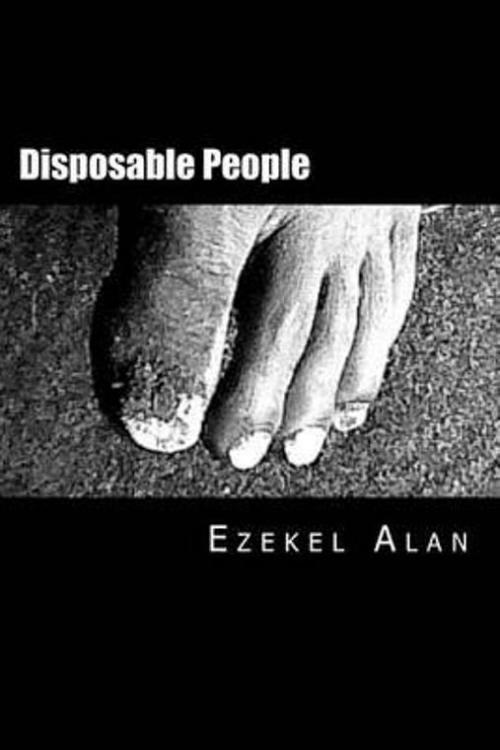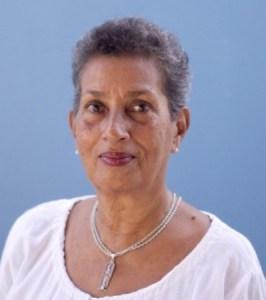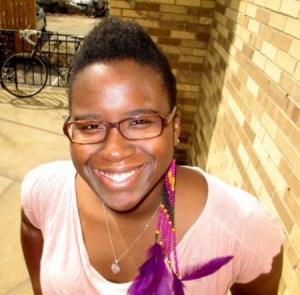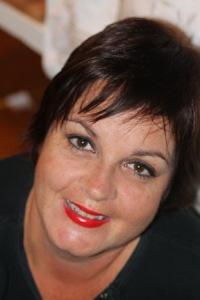
Shortlisted for the 2013 Commonwealth Book Prize
Disposable People by Ezekel Alan has been shortlisted for the 2013 Commonwealth Book Prize. Alan, a Jamaican self published author, is the only Caribbean writer who made unto the shortlist. Three other Caribbean writers were shortlisted for the 2013 Commonwealth Short Story Prize – Barbara Jenkins and Sharon Millar from Trinidad and Tobago along with A.L. Major and Janice Lynn from the Bahamas.
The Commonwealth Book Prize is awarded for the best first novel, and the Commonwealth Short Story Prize for the best piece of unpublished short fiction. Writers from around the world have been shortlisted in anticipation of being announced as overall winners at Hay Festival, on May 31, 2013.
Encompassing a span of 54 countries, entries are judged within the five regions of Africa, Asia, Canada and Europe, the Caribbean and the Pacific, each of which will produce a regional winner for the two prizes. These will be announced on 14 May 2013.
Here’s more on the Caribbean finalists:
Disposable People by Ezekel Alan
EZEKEL ALAN was born and raised in rural Jamaica and spent his formative years under the Socialist regime of the 1970s. He currently lives with his wife and kids in an architecturally noteworthy house in Asia, has a good, reliable dog and a satisfyingly abundant supply of sweet, juicy mangoes. Inspired by true events, Disposable People is Ezekel’s debut novel. He is currently working on his second.
Synopsis
Ten year old Kenneth Lovelace often went to bed without dinner. Instead of feeling hunger, however, what he mostly felt was fear and shame, knowing that his family’s poverty was the reason he had no food. Kenneth also recalls his bitterness whenever his parents locked him out of their tiny, one-room house to act on their ‘urge’. This was in the 1970s, when Jamaica’s socialist regime was dragging the country into bankruptcy, and when an Old Timer had told him that he was cursed since birth. Beginning with his earliest memories, “Disposable People” traces the life of Kenneth Lovelace, now a consultant living in the USA. After a string of failed marriages, bad relationships and other misfortunes, Kenneth looks back at his life in his old, hateful village with hopes of finding the roots of his latest tragedy. What comes out is a story of mischief and adventures, sex, prejudice, evil spirits, adversities and, progressively, violence.
Ezekel Alan in his own words: “Disposable People was a very difficult story for me to write, and for many reasons. A few readers and reviewers have commented that the novel reads like a memoir, and that the pain and emotions are so palpable that it is hard to regard it as a work of fiction. They are right – much of what is in the story is based on things that happened to me growing up.
“It took me close to two years to write the book, not because I didn’t know the story I wanted to write, but because I wasn’t sure I wanted to tell it. If one day you go home from school hungry (again) because you didn’t have breakfast or lunch and you ask your mother what’s for dinner, and her response is “Shit”, this memory will stay with you, but you will always be ashamed to talk about it. I struggled with writing about these things partly because I didn’t want to dishonor the memories of all the people I grew up with, many of whom have now died. In the same way, I’ve seen many dreadful things happen to the poor folks in our neighbourhood – murders, rapes, child abuse, and the brutal beatings and punishments meted out to gays and thieves. Before I could write about these things, I had to think hard about the image people have of Jamaica, and whether if I told the stories about the things I saw, heard, and participated in, people would think that I was unpatriotic or, as we say back home, a “sell-out” (betrayer).
“I love my country. It is the only place I will call home, and someday I hope to retire there. But the time came when I felt I had to tell this story. It is a work of fiction, but an awful lot of it is true.
“I am very surprised and deeply grateful for all the kind reviews and comments I have received so far. It has given me confidence and courage to write my next novel, which is now half-way complete.” Read more on Ezekel’s Goodreads page
Below are the Caribbean writers shortlisted for the 2013 Commonwealth Short Story Prize.
A Good Friday, Barbara Jenkins (Trinidad and Tobago)

Barbara was born in Trinidad, where she continues to live and work. She started writing in what she calls her third life. A lifetime of geography teaching and child rearing in Trinidad ended with widowhood and the start of a second life teaching in the UK, backpacking through India, Peru and Cuba, visiting friends and relatives in Europe and North America and co-authoring a Health and Family Life Education textbook series for Caribbean schools.
The Cropper Foundation/UWI Creative Writing residential workshop 2008 heralded another new beginning. Encouraged by early recognition in international writing competitions including the Commonwealth Short Story, Caribbean Region 2010 and 2011, Wasafiri New Writing Life Writing 2009, Small Axe Fiction 2011, The Caribbean Writer Fiction 2010 and the CCN Film Review Prize, Trinidad & Tobago Film Festival 2012, Barbara embarked on an MFA in Creative Writing at the University of the West Indies, Trinidad, graduating in 2012.
Her debut collection of short stories, Sic Transit Wagon, published by Peepal Tree Press, UK, is due in summer 2013.
Antonya’s Baby Shower on Camperdown Road, A.L. Major (Bahamas)

A. L. Major is a Bahamian-born writer, who graduated from Vassar College with Honors in 2011. Recipient of the Harry Moore scholarship and Vassar’s Ann E. Imbrie Prize in Fiction, she is a second year MFA Fiction candidate at the University of Michigan. She is currently working on her novel, Dismantle The Sun.
The Whale House, Sharon Millar (Trinidad & Tobago)

Sharon Millar is a Trinidadian writer who lives in Port of Spain with her husband and daughter. She is particularly driven by the landscape of her homeland and her work touches on issues that affect her as a Trinidadian citizen and as a woman. The worlds of her stories are occupied by protagonists who struggle with moral issues, crime, illness, loyalty, betrayal, and all the other messy things that make up a life. Writing from a Caribbean island right here and right now allows her to illuminate complications that lie beneath the surface of a young state trying to move forward as a cohesive society. She is conscious of pushing past the Caribbean stereotypes of exoticism and tries to create characters that are universal in their desires and conflicts.
Mango Summer, Janice Lynn (Bahamas)
A fruitful summer. Mangoes everywhere. Mangoes ripening on street corners and dumped on doorsteps. Mangoes shoved into meals where mangoes never belonged. Arms full of hot, sticky-sweet orange fruit. In all that glut, all that sweet, little girls start to disappear.
Janice Lynn is a Bahamian writer. She holds a Master of Fine Arts from the University of British Columbia, and has published in anthologies including Tongues Of The Ocean, A Sudden and Violent Change, and We Have A Voice. Her writing has been shortlisted for the 2011 Small Axe 2011 Literary Competition and the 2012 Commonwealth Short Story Prize. She spends much of her time abroad, but will always be a Nassau gal.
The Complete Shortlists:
Commonwealth Book Prize
- Sarah House, Ifeanyi Ajaegbo (Nigeria), Pan Macmillan South Africa
- Disposable People, Ezekel Alan (Jamaica), self-published
- Floundering, Romy Ash (Australia), Text Publishing
- Running the Rift, Naomi Benaron (Canada), HarperCollins Canada
- Mazin Grace, Dylan Coleman (Australia), University of Queensland Press
- A Tiger in Eden, Chris Flynn (Australia), Text Publishing
- The Unlikely Pilgrimage of Howard Fry, Rachel Joyce (United Kingdom), Transworld Publishers
- The Headmaster’s Wager, Vincent Lam (Canada), Doubleday Canada
- Island of a Thousand Mirrors, Nayomi Munaweera (Sri Lanka), Perera-Hussein Publishing House
- The Death of Bees, Lisa O’Donnell (United Kingdom), William Heinemann
- The Spider King’s Daughter, Chibundu Onuzo (Nigeria), Faber and Faber
- Em and the Big Hoom, Jerry Pinto (India), Aleph Book Company
- The Wildings, Nilanjana Roy (India), Aleph Book Company
- The Great Agony & Pure Laughter of the Gods, Jamala Safari (South Africa), Umuzi
- The Last Thread, Michael Sala (Australia), Affirm
- The Other Side of Light, Mishi Saran (India), HarperCollins India
- God on Every Wind, Farhad Sorabjee (India), Parthian
- Sterile Sky, E.E. Sule (Nigeria), Pearson Education
- Narcopolis, Jeet Thayil (India), Faber and Faber
- Beneath the Darkening Sky, Majok Tulba (Australia), Penguin Books Australia
- The Bellwether Revivals, Benjamin Wood (United Kingdom), Simon & Schuster UK
Commonwealth Short Story Prize
- Not for Publication, Rachel Bush (New Zealand)
- A Killing in the Sun, Dilman Dila (Uganda)
- NORMAL, Susan Everett (United Kingdom)
- Chutney, Debz Hobs-Wyatt (United Kingdom)
- Fatima Saleh, Alexander Ikawah (Kenya)
- The New Customers, Julian Jackson (South Africa)
- Notes from the Ruins, Anushka Jasraj (India)
- A Good Friday, Barbara Jenkins (Trinidad and Tobago)
- Antonya’s Baby Shower on Camperdown Road, A.L. Major (Bahamas)
- Mango Summer, Janice Lynn (Bahamas)
- Things With Faces, Zoë Meager (New Zealand)
- The Sarong-Man in the Old House, and an Incubus for a Rainy Night, Michael Mendis (Sri Lanka)
- The Whale House, Sharon Millar (Trinidad and Tobago)
- No War is Worth Debating, Tobenna Nwosu (Nigeria)
- Take me Home United Road, Sally-Ann Partridge (South Africa)
- Mortal Sins, Sinead Roarty (Australia)
- We Walked On Water, Eliza Robertson (Canada)
- Tug of War, Deborah Rogers (New Zealand)
- Raven, Tom Williams (Australia)
For more information, link to Commonwealth Book Prize shortlist at http://www.commonwealthwriters.org/cbp-shortlist-2013/ and the Commonwealth Short Story Prize at http://www.commonwealthwriters.org/cssp-shortlist-2013/
